SWEDISH SOUTH ASIAN STUDIES NETWORK
Department of Sociology, Lund University:
South Asia related research at the department |
Postal address: Box 114, SE-221 00 Lund, Sweden
Visiting address: Paradisgatan 5, house G
Web page: http://www.soc.lu.se/
Contact
person: Professor Emeritus Staffan
Lindberg, phone: 46 46 222 88 62.
Personal
web page.
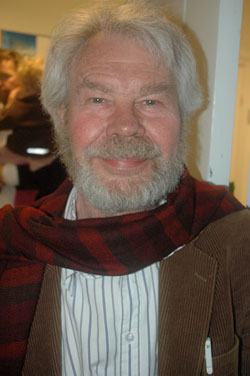 The
department has a long
history of Indian and South Asian Studies pioneered by Staffan Lindberg
in 1966 and Göran Djurfeldt in 1969.
For many
years South Asian studies has taken place within a broader programme
called the Development Studies
Seminar,
which has trained PhD candidates in sociological development studies.
Seminars have been held regularly every second week and doctoral courses
organised together with other institutions in the Nordic countries.
The
department has a long
history of Indian and South Asian Studies pioneered by Staffan Lindberg
in 1966 and Göran Djurfeldt in 1969.
For many
years South Asian studies has taken place within a broader programme
called the Development Studies
Seminar,
which has trained PhD candidates in sociological development studies.
Seminars have been held regularly every second week and doctoral courses
organised together with other institutions in the Nordic countries.
In the programme Social Movements and Strategies
in Development 1988-1998 (co-funded by SAREC and co-ordinated
by Staffan Lindberg) the Dept. of Sociology has organised senior teachers,
researchers and doctoral students in sociology and anthropology in a
number of joint activities like seminars, guest-lectures, courses and
a publication series. Part of the focus has been on South Asia. In 1993,
it conducted a Nordic Conference on Social Movements in the Third World
in Lund with about 90 participants, which resulted in an anthology edited
by Lindberg and Arni Sverrisson:
Social Movements in Development. The Challenge of Globalization and
Democratization (1997, London: Macmillan, with four chapters on
India). In 1993 it also conducted a conference on Gender in Development,
which resulted in the anthology: Feminist Interventions in Discourses
on Gender and Development (Eds. Sara Goodman and Diana Mulinari,
1999, Lund: Dept. of Sociology). Between 1992 and 1998 a total of 14
doctoral students passed their PhD examination within this programme.
In the last decade, researchers from the Lund sociology department
have led the building up of the Nordic
Association of South Asian Studies, NASA. Göran
Djurfeldt was its first chairman 1989-91. More recently, Dr. Stig
Toft Madsen, has been its chairman 1995-1999 and Pernille Gooch was on its executive board 1995 – 1999.
The Department of Sociology will host an Indian guest professor during the academic year 2011-2012. It is arranged through SASNET and financed by the ICCR (Indian Council for Cultural Relations) mediated through the Indian Embassy in Sweden. More information. ![]()
South Asia related research at the department
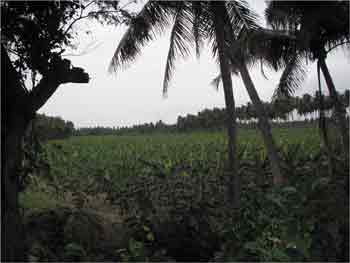 • Staffan
Lindberg and Göran
Djurfeldt defended their joint doctoral dissertation
in 1975. It consisted of two volumes, titled ”Behind
Poverty: The Social Formation in a Tamil Village” and ”Pills
Against Poverty. A Study of the Introduction of Western Medicine
in a Tamil Village”
respectively.
• Staffan
Lindberg and Göran
Djurfeldt defended their joint doctoral dissertation
in 1975. It consisted of two volumes, titled ”Behind
Poverty: The Social Formation in a Tamil Village” and ”Pills
Against Poverty. A Study of the Introduction of Western Medicine
in a Tamil Village”
respectively.
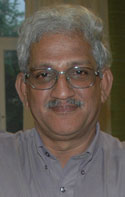 The books were published by Curzon Press. The
project was carried out in collaboration with Professor Venkatesh
Athreya (photo to the left), later working at Bharathidasan
University in Tiruchirappali, India, and currently at the MS Swaminathan Research Foundation in Chennai.
The books were published by Curzon Press. The
project was carried out in collaboration with Professor Venkatesh
Athreya (photo to the left), later working at Bharathidasan
University in Tiruchirappali, India, and currently at the MS Swaminathan Research Foundation in Chennai.
(Read
a review of the books by Michael Moffatt in the The Journal of Asian
Studies, 1977 volume 2).
They continued with another
Sida/SAREC financed research project on production
relations in Indian agriculture between 1979 and 1986. The project
involved studies of about 400 farmers in six villages in two different
ecological settings in South India (Tiruchirapalli District in Tamil
Nadu).
A number of articles appeared in scientific journals and a major
monograph ”Barriers
Broken – Production Relations and Agrarian Change in South
India” was published in 1990. The study was
funded by SAREC, Lund and Copenhagen universities and NIAS, and it
highlighted the contrasting social structures in the two ecotypes
of wet and dry villages in Tamil Nadu.
From 2003 Prof. Lindberg and Prof. Djurfeldt again worked
on a joint project titled ”Revisiting
Rural South India: Twenty-five Years of Change and Mobility”.
The project was given a SASNET Planning grant in January 2003,
and then received funding with SEK 1.5 million for three years
(2004-06) by a Sida/SAREC
grant in December 2003. In November 2004 the project, now renamed
”Social Mobility and Agrarian Transformation
– An Indian case” was granted additional SEK 1 580
000 SEK by the Swedish Research Council for the three-years period 2005-07. More
information.
The project has been carried out again in collaboration with Prof.
Venkatesh Athreya, and also with Dr. R. Vidyasagar from the Madras Institute of Development Studies, Chennai, India, and Dr. A. Rajagopal from SaciWATERs in Hyderabad.
The project is an assessment in a twenty-five year perspective
of the social and economic consequences of the Green Revolution, and
of theories of social differentiation and mobility in rural India. The
restudy, based on the study conducted in 1979/80, will be
an assessment in a twenty-five year perspective of the social and economic
consequences of the Green Revolution, and of theories of social differentiation
and mobility in rural India, with an aim to grasp agrarian changes
and factors which control and direct the course of these changes.
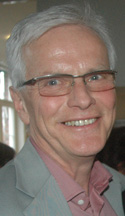 Both
Göran Djurfeldt (photo to the right) and Staffan Lindberg
presented results from this research project in papers at the 2007
Annual Meeting of the Swedish Sociological Association, held
in Lund 8–9
February 2007, in workshop No. 9 on ”Development Studies
and Global Relations”. Djurfeldt’s papers was titled ”Agrarian
Change and Social Mobility in Tamil Nadu”, focusing on the
social mobility in the villages under study. He pointed out that the two
most important external drivers are local industrialization and social
policy in a broad sense. Analyzing mobility matrices by means of regression
techniques, it is shown that the overall effect is a centralpetal tendency
in agrarian structure, with a strengthened position for family farming
and a tendency for both the topdogs and the underdogs in the old agrarian
society to leave agriculture altogether, seeking improved life chances
in the non-agrarian economy, both inside the villages and in the wider
economy. More information about Prof. Djurfeldt’s
research, below.
Both
Göran Djurfeldt (photo to the right) and Staffan Lindberg
presented results from this research project in papers at the 2007
Annual Meeting of the Swedish Sociological Association, held
in Lund 8–9
February 2007, in workshop No. 9 on ”Development Studies
and Global Relations”. Djurfeldt’s papers was titled ”Agrarian
Change and Social Mobility in Tamil Nadu”, focusing on the
social mobility in the villages under study. He pointed out that the two
most important external drivers are local industrialization and social
policy in a broad sense. Analyzing mobility matrices by means of regression
techniques, it is shown that the overall effect is a centralpetal tendency
in agrarian structure, with a strengthened position for family farming
and a tendency for both the topdogs and the underdogs in the old agrarian
society to leave agriculture altogether, seeking improved life chances
in the non-agrarian economy, both inside the villages and in the wider
economy. More information about Prof. Djurfeldt’s
research, below.
Prof.
Lindberg’s paper was titled ”Social and
Political Changes in Rural Tamil Nadu in a 25 Years’ Perspective”, and dealt with the social
and political changes that has taken place. A dormant local government
has begun to wake up after the 1993 legislation making it mandatory.
A rudimentary welfare state has been developed by Tamil nationalist parties
in response to issue- and need-based popular demands. 1/3 reservation
has brought women into the three Panchayat levels (village, block and
district) and a process of empowerment has begun, which is also the case
for the Dalit castes though in the latter case at an uneven and slow
pace. This is a process supported by the formation of many women’s
savings groups in all the villages and the entry of women into non-farm
occupations. Women’s groups make up the most important form of
non-traditional collective action today, while the once so vibrant farmers’ movement
has all but disappeared.
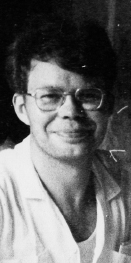 A one-day felicitation seminar was held in honour of Prof. Staffan Lindberg on Thursday 8 April 2010, Staffan’s 67th birthday.
The seminar was prepared by Göran Djurfeldt, Abdulhadi Khalaf and other colleagues within the department.
A one-day felicitation seminar was held in honour of Prof. Staffan Lindberg on Thursday 8 April 2010, Staffan’s 67th birthday.
The seminar was prepared by Göran Djurfeldt, Abdulhadi Khalaf and other colleagues within the department.
Several of Staffan’s ex-students, as well as Scandinavian and international friends and colleagues participated in the seminar, presenting short papers. Among others, they included Prof. Partha Nath Mukherji from the Institute of Social Sciences in New Delhi, India; Prof. Emeritus Björn Hettne, PADRIGU, School of Global Studies, University of Gothenburg; Dr. Preben Kaarsholm, Roskilde University; and Dr. Stig Toft Madsen, University of Copenhagen. The writer Lasse Berg and the journalist Christian Andersson also held presentations in honour of Staffan, SASNET’s current Director, Dr. Anna Lindberg participated, presenting a paper on ”The New Kerala Model: ‘Prosperity of the Family’ through self-help groups”. More information. ![]()
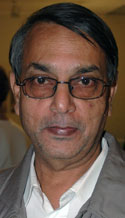 Dr. R. Vidyasagar (photo to the right) from the Madras Institute of Development Studies, Chennai, India, held a guest lecture at Lund University on Monday 29 October 2007. Dr. Vidyasagar talked about ”Child Labour in India. Present Situation and Future Prospects in the Era of Globalisation”. The lecture was organised by the Research Group on
Society, Development, Environment, at the Department of Sociology. R. Vidyasagar is a senior researcher who has specialised in the Indian labour market, especially on child labour issues, on which he has written extensively. Recently, he has been engaged in the Panel study of 25 years of change in rural Tamil Nadu (see above). In 2007, he was invited on a SASNET guest lecture travel grant, and during his stay in Sweden he also gave a lecture/seminar at the Department of Economic History at Stockholm University on Wednesday 31 October. See
the full list of SASNET planning grants 2006.
Dr. R. Vidyasagar (photo to the right) from the Madras Institute of Development Studies, Chennai, India, held a guest lecture at Lund University on Monday 29 October 2007. Dr. Vidyasagar talked about ”Child Labour in India. Present Situation and Future Prospects in the Era of Globalisation”. The lecture was organised by the Research Group on
Society, Development, Environment, at the Department of Sociology. R. Vidyasagar is a senior researcher who has specialised in the Indian labour market, especially on child labour issues, on which he has written extensively. Recently, he has been engaged in the Panel study of 25 years of change in rural Tamil Nadu (see above). In 2007, he was invited on a SASNET guest lecture travel grant, and during his stay in Sweden he also gave a lecture/seminar at the Department of Economic History at Stockholm University on Wednesday 31 October. See
the full list of SASNET planning grants 2006.
In November 2008, the results from the project on ”Revisiting Rural South India: Twenty-five Years of Change and Mobility” was published in the Economic and Political Weekly journal. The article titled ”Agrarian Change and Social Mobility in Tamil Nadu” is jointly written by Göran Djurfeldt, Staffan Lindberg, Venkatesh Athreya, R. Vidyasagar, A. Rajagopal, and N. Jayakumar. It stresses that the two most important external drivers have been local industrialisation and social policy in a broad sense. It is shown that the overall effect seems to be a centripetal tendency in agrarian structure, with a movement towards a strengthened position for family farming and for the underdogs in the old agrarian society to leave agriculture altogether, seeking improved life chances in the non-agrarian economy, both inside the villages and in the wider economy. Read the EP&W article.
Between
1997 and 2001 Prof. Lindberg worked with a comparative project jointly
financed by the Danish Council for Development Research (DANIDA) and
the Swedish International Development Agency (SIDA/SAREC). It was titled
”Farmers'
Organisations and Agricultural Development in Taiwan, Thailand and India:
The Challenge of Democratisation and Globalisation”,
in collaboration with Dr.
Stig Toft Madsen. The purpose of the project
was to study and assess the emergence, current impact and possible future
importance of a number of producer oriented farmers' movements and organisations,
or attempts at organising, in Asia. Drawing on the experiences from
India accumulated by Lindberg, as well as other studies from Asia, they
focused on the contemporary development of farmers' movements and organisations
(FMOs) in three countries representing different parts of capitalist
Asia, i.e. India, Thailand and Taiwan. The study was set within the
contemporary trends of globalisation in two fields: the economic (especially
international trade) and the political (especially democratisation).
The third dimension of the project was the environmental challenge
in agriculture and how FMOs relate to this also increasingly global dimension
of development.
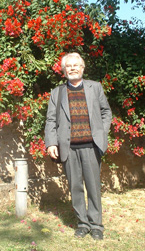 In
2006 Staffan Lindberg presented an article on the subject, ‘Rättvisa,
men vilken? När
de förtryckta
mobiliseras’ (Justice for Whom? When
the Oppresed in the South are Mobilised) in a volume titled
”Sociala Rörelser – Politik
och Kultur” (Social Movements – Politics and Culture),
edited by Åsa Wetterberg and Andrew Jamison, and
published by
Studentlitteratur as part of the department’s Social
Movements and Strategies in Development project. More
information.
In
2006 Staffan Lindberg presented an article on the subject, ‘Rättvisa,
men vilken? När
de förtryckta
mobiliseras’ (Justice for Whom? When
the Oppresed in the South are Mobilised) in a volume titled
”Sociala Rörelser – Politik
och Kultur” (Social Movements – Politics and Culture),
edited by Åsa Wetterberg and Andrew Jamison, and
published by
Studentlitteratur as part of the department’s Social
Movements and Strategies in Development project. More
information. ![]()
Since 1968, Staffan Lindberg has taught and guided students
at all levels in theory, methods, and his special fields of development
studies, both at the Dept. of Sociology and at the the Dept.
of Social and Economic Geography/Development Studies. Jointly with
other teachers he organised a Masters Course in Rural Development at
the Dept. of Sociology during the years 1994–96 . He is a full
professor of Sociology at Lund University since 1999. Besides this position,
he has also been Director and co-ordinator for SASNET from 2000 till
2007, on a 50 % basis.
Over the years, he has also carried out extensive field work in South India,
Punjab and Thailand; organised conferences (such as the 18th
European Conference on Modern South Asian Studies in 2004) and symposia;
and since 2001 organised the undergraduate social science course on India/South
Asia at Österlen
folk high school in Tomelilla (more
information about this course).
For full information about Prof. Lindberg’s
academic qualifications, see
his CV (as a pdf-file).
Staffan Lindberg and Göran Djurfeldt have also been
active in promoting the establishment of a network of South Asian
sociologists. In February 2005 they received a SASNET
planning grant to fund a workshop (The Second
South Asia Sociology Workshop – SAW II) that was held in
Surajkund, India, 22–23 December
2005. This was the second meeting of South Asian sociologists within
a year, and it was
organised by the Indian Sociological Society through Prof. Ravinder
Kaur at the Indian Institute of Technology in Delhi; and Prof.
Partha Mukherji, Jawaharlal
Nehru University, New Delhi. Staffan Lindberg, was present in the workshop
along with sociologists from Bangladesh, Bhutan, India, Nepal,
Pakistan and Sri Lanka. Read Staffan Lindberg’s
report from SAW II. ![]()
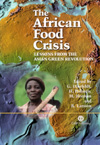 • Besides
his joint research projects with Staffan Lindberg (see above),
Prof. Göran
Djurfeldt has also been involved in a project titled ”African
Food Crisis
– the relevance of Asian models”, with Rolf
Larsson and Mikael
Hammarskjöld at the same department. The project
was financed by Bank of Sweden Tercentenary Foundation and lasted for
three years from January 2001. It also involved Magnus
Jirström at the Dept. of Social
and Economic Geography,
Lund University, Hans Holmén,
Dept. of Geography, Linköping University, and collaborating scholars
from all over the World. In India they were deeply inspired by interviews
with M.S. Swaminathan and G.S. Bhalla, and in Bangladesh they were assisted
by Mahabub Hossain and his network. The project resulted in a book called ”The
African Food Crisis: Lessons from the Asian Green Revolution”,
edited by Göran Djurfeldt, Rolf Larsson (who tragically passed away
in a car accident in Tanzania in 2004), Magnus Jirström and Hans
Holmén. It was published by CAB Publishing in London, UK in 2005. More
information on the book (as a pdf-file).
• Besides
his joint research projects with Staffan Lindberg (see above),
Prof. Göran
Djurfeldt has also been involved in a project titled ”African
Food Crisis
– the relevance of Asian models”, with Rolf
Larsson and Mikael
Hammarskjöld at the same department. The project
was financed by Bank of Sweden Tercentenary Foundation and lasted for
three years from January 2001. It also involved Magnus
Jirström at the Dept. of Social
and Economic Geography,
Lund University, Hans Holmén,
Dept. of Geography, Linköping University, and collaborating scholars
from all over the World. In India they were deeply inspired by interviews
with M.S. Swaminathan and G.S. Bhalla, and in Bangladesh they were assisted
by Mahabub Hossain and his network. The project resulted in a book called ”The
African Food Crisis: Lessons from the Asian Green Revolution”,
edited by Göran Djurfeldt, Rolf Larsson (who tragically passed away
in a car accident in Tanzania in 2004), Magnus Jirström and Hans
Holmén. It was published by CAB Publishing in London, UK in 2005. More
information on the book (as a pdf-file).
In 2001, Djurfeldt also published another book in Swedish dealing with
the World food crisis, titled ”Mera mat – att
brödföda
en växande
befolkning” (More food – feeding a growing population,
Arkiv förlag, Lund).
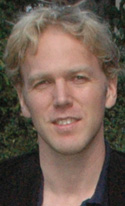 Olle Frödin defended his PhD with an Africa related thesis at the Dept. of Sociology in 2008. He has since shifted over his reserach focus to South Asia. He has been affiliated to the Oxford Department of International Development (ODID) at Queen Elizabeth House, University of Oxford, UK, but in 2011 he has returned to Lund University, currenly being a Research Fellow at the Pufendorf Institute, Lund University’s cross-disciplinary research institute inaugurated in 2009, but from November 2011 he willl be connected to the Dept. of Sociology.
Olle Frödin defended his PhD with an Africa related thesis at the Dept. of Sociology in 2008. He has since shifted over his reserach focus to South Asia. He has been affiliated to the Oxford Department of International Development (ODID) at Queen Elizabeth House, University of Oxford, UK, but in 2011 he has returned to Lund University, currenly being a Research Fellow at the Pufendorf Institute, Lund University’s cross-disciplinary research institute inaugurated in 2009, but from November 2011 he willl be connected to the Dept. of Sociology. ![]()
In 2009, Olle Frödin initiated an India related post-doc research projectat Queen Elizabeth House. The project was entitled ”Between Policy and Practice: The Politics of Food and the Governance of the Public Distribution System in India”.
Abstract: The project investigates the functioning of the Indian public distribution system (PDS), a large scale food rationing programme, which aim at assuring food security of the people of India, against the wider backdrop of the structural transformation of the Indian economy. There are considerable interstate differences with regard to the performance of (e.g. the effectiveness, coverage and the levels of corruption and leakages) and of people’s access to, the public food distribution system across India. The proposed project seeks to examine differences in the governance of the public food distribution system by making comparisons among rural areas with similar characteristics in terms of agro-ecological circumstances and levels of industrialization, but that differ considerably with regard to the performance and coverage of the PDS, in two neighbouring Indian states, Maharashtra and Andhra Pradesh. Thus the project aims to uncover some of the underlying social mechanisms explaining the functioning or malfunctioning of administrative organisations. The project contributes to current research on food security and public food delivery systems, issues that may become increasingly important when viewed in light global climate changes.
Later, Dr. Frödin has continued his research work att Oxford University with a project entitled ”Bread and Licenses: The battle for the regulation of the agro-food system in India”.![]()
Abstract:
The project seeks to examine some political-economic aspects of the contemporary agrarian question in India. Since independence, the Indian agriculture and food system has been regulated with two main goals in mind: food sovereignty and food security. To achieve these goals, the Government of India developed a framework which regulates the production and distribution of food grains through a public distribution system of food grains, food grain price stabilization operations, and through firm regulations of food grain markets. In the wake of the liberalization reforms of the 1990s, this regulatory system has faced growing reform pressures. The private system of procurement, processing and distribution of agricultural products is considered to be too fragmented and inefficient since it is dominated by small traders, processers and retailers that are interlinked in complex ways. In September 2003, the Government of India introduced a new Model Law on Agricultural Marketing with the aim of improving the conditions for agribusinesses in India. The introduction of the New Model Law entails fundamental changes in India’s political economy and is likely to alter preexisting power relations with regard to production, procurement, distribution and sales. Intermediary traders and small processing firms may lose some of their command over food, while large corporations gradually increase their control of procurement, processing, trading and marketing chains. Thus, the reforms are likely to break up local hegemonies involving owners of small agribusiness and retail firms, and change the functioning of the entire Indian food system. This project aims to examine the political reactions to the liberalization of food procurement regulations.
 • Dr. Stig
Toft Madsen (photo to the right) defended
his doctoral thesis titled ”State,
Society and Human Rights in South Asia”
at the department in 1995. The thesis deals with Law, Legality, the Legal Profession and Security Studies – topics ranging from the economic rights of forest dwellers to the right of secession claimed by separatist movements in Sri Lanka, Punjab and elsewhere.
• Dr. Stig
Toft Madsen (photo to the right) defended
his doctoral thesis titled ”State,
Society and Human Rights in South Asia”
at the department in 1995. The thesis deals with Law, Legality, the Legal Profession and Security Studies – topics ranging from the economic rights of forest dwellers to the right of secession claimed by separatist movements in Sri Lanka, Punjab and elsewhere.
During the early 1990s, Dr. Toft Madsen worked as a Research Fellow at the Dept.
of Sociology. He was engaged in a research project,
titled "The
Rule of Law in South Asia: Human Rights Issues in Post-Colonial Plural
States", that was financed by Sida/SAREC and by Lund University. This project resulted in his doctoral thesis.
Later he has worked as Research Associate at the Nordic Institute for
Asian Studies (NIAS) in Copenhagen, Denmark, and the Dept. of Geography and International Development Studies, Roskilde
University.
Over the years, Dr. Toft Madsen has continued to work on the broad fields of law and legality, litigation, the legal profession, formal versus informal conflict resolution mechanisms, legal pluralism and legal monism, and human rights. But he also been involved in research projects focused on Agrarian Transformation, where he has studied farmers’ movements in several Indian states and in other parts of Asia. Specifically, he has worked on the emergence of, and resistance to, genetically modified cotton. Consequently, his area of interest includes Science & Technology studies. Another focus area for his research has been Social Ecology. He has worked on projects on global and local environmental history, issues of biodiversity and conservation, the economy of fishing, forestry and the rights of forest-dwellers, the anthropology of ornithology, and on “nature” as a cultural category.
His
current research interests include terrorist movements in South Asia and Indo-Pakistani relations, as well as everyday political practices and political cultures.
Stig Toft Madsen is currently associated to the Centre for East and South-East Asian Studies, Lund University, teaching at their Masters programme courses in South Asian studies. From December 1, 2008, he is also working as an Assistant Director for SASNET on a 25 % basis. He is based in a room next to SASNET’s root node office at Scheelevägen 15 D in Lund.![]()
•
Aina Winsvold defended
her doctoral dissertation ”Når
arbeidende barn mobiliserer sig. En studie av tre unioner i Karnataka,
India” (When Children Unite – child workers’
organisations in India), on Thursday 16 December 2004. Faculty opponent
was Associate Professor Per Bolin Hort, Södertörn University
College, Huddinge.
It is a study of the organisation of working
children in India mainly through three cases studies in Bangalore, Karnataka.
It is a pioneering study asking basic questions like what is the origin
of these movements and their demands? What methods do they use to achieve
these aims? How are members recruited? The study navigates in a minefield
of national and international contradictions and conflicts over child
work and the right of children to organise and voice their demands.
The study uses organisational and social movement theory, as well as
psychological and anthropological theories about child development.
Fieldwork consisted of a case study of each organisation, leaders,
followers, adult advisors, etc. In interviewing children, some of the
methods of participatory appraisal were used, i.e. drawings, role-play
and creative workshops. The project was funded by a grant from the Norwegian
Research Council. More information about the thesis.
Dr. Winsvold has now returned to Norway, where she has worked
as co-ordinator for the Campbell Social Services Group at the Norwegian
Knowledge Centre for the Health Services in Oslo. She is currently Senior Researcher/cand.mag at NOVAs (Norwegian Social Research) Nordic Centre of Excellence in Welfare Research in Oslo. More information. ![]()
• Malin
Arvidson successfully defended her dissertation, ”Demanding
Values. Participation, Empowerment, and NGOs in Bangladesh”,
on 14 March 2003. Read
an abstract of the dissertation.
The project was focused on participatory strategies
used within water supply and sanitation (WSS) projects in Bangladesh.
The aim was to confront theoretical ideals with practical reality faced
while implementing participatory strategies. Analysis of the theoretical
aspects of the concept of participation per se were made through study
of literature. This analysis was combined with analysis of two WSS-projects
in Bangladesh using participatory strategies. Material concerning the
two projects was being gathered through fieldwork in two districts of
Bangladesh.
In November 2003 Malin Arvidson was given SEK 765 000 a
Sida/SAREC post-doc grant for a research
project on ”Institutions and livelihoods:
Perspectives of change in rural Bangladesh”.
In November 2005 she again received a minor grant for this project
to be carried out during 2006. The aim of this project is to investigate
how a changing institutional environment is related to changing livelihood
strategies in rural Bangladesh. Poverty has fallen in Bangladesh but
remains high. Simultaneously NGOs have increased coverage and intensity
in their activities, and state administration has undergone attempts
at decentralisation. How have the increasingly diversified livelihood
strategies of rural households engaged with this institutional environment?
What roles do more informal social institutions play in evolving livelihood
strategies? These questions are central to discussions of the nature
of poverty alleviation and welfare improvement. The project evolves
from a study gathering life histories of rural households.
Dr Malin Arvidson is now involved in a longitudinal study commissioned by the Sida. The 5-year study, called Reality Check Bangladesh, was initiated in 2007 and aims to explore poor people’s perceptions and experiences of the education and health sectors.
She works as a
Senior Research Assistant at the Third Sector Research Centre (TSRC),
Division of Sociology and Social Policy, University of Southampton, UK. More information on her research. ![]()
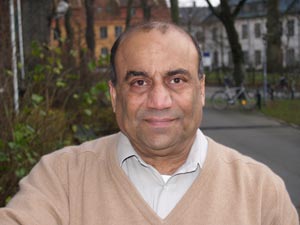 • Abdulhadi
Khalaf has worked on a project titled ”The
Jihad Volunteers: A Study in Transnational Mobilisation”.
The project covers the trans-national movement of volunteers in the Afghan
Jihad. During its heydays, 1978-1991, the movement has formed a highly
visible component of an international alliance, which emerged to offer
financial, political and military backing to the resistance waged by
the Mujahideen against the Soviet presence in Afghanistan. It is proposed
that the success and subsequent fragmentation of the movement are closely
connected to several simultaneous processes: a) the growth of Islamism,
b) the regional ramifications of the Cold War, and c) the emergence of
the Jihad as an alternative ‘new space
for collective action’. As a trans-national movement, that has
its roots in the Third World, it presents some of the understudied aspects
of globalisation processes. The project was financed by a grant from
the Swedish Research Council during the period 2000-2002.
• Abdulhadi
Khalaf has worked on a project titled ”The
Jihad Volunteers: A Study in Transnational Mobilisation”.
The project covers the trans-national movement of volunteers in the Afghan
Jihad. During its heydays, 1978-1991, the movement has formed a highly
visible component of an international alliance, which emerged to offer
financial, political and military backing to the resistance waged by
the Mujahideen against the Soviet presence in Afghanistan. It is proposed
that the success and subsequent fragmentation of the movement are closely
connected to several simultaneous processes: a) the growth of Islamism,
b) the regional ramifications of the Cold War, and c) the emergence of
the Jihad as an alternative ‘new space
for collective action’. As a trans-national movement, that has
its roots in the Third World, it presents some of the understudied aspects
of globalisation processes. The project was financed by a grant from
the Swedish Research Council during the period 2000-2002.
In 2006, an article based on Khalaf’s research project was presented
in an edited volume on Social Movements (”Sociala Rörelser.
Politik och Kultur”) published by the Dept. of Sociology and Studentlitteratur.
The article is titled ”De arabiska frivilliga –
en transnationell, social rörelses uppgång och fall”
(The Arab volunteers – the rise and fall of a transnational social
movement). More
information (in Swedish only).
Abdulhadi Khalaf is
also working on a project on Globalisation, the
Cyberspace, and Islamism. This project is
an exploratory study in one of the understudied areas of globalisation:
The spread of
“Third Worldish” socio-political networks and movements beyond
the geo-cultural space of the Third World itself. The study focuses
on the efforts of various Islamist networks and movements to utilise
cyberspace as a vehicle for generating and consolidating “an Islamist
global identity”, a virtual Umma. (Grant from FRN).
The Lund University students union magazine Lundagård published an interview with Abdulhadi Khalaf in its 8/2008 issue. The article, focusing on Khalaf’s research on Jihadi volunteers to Afghanistan, is written by the journalist Karl Eckhardt, and is entitled ”Vår tid hade kunnat se annorlunda ut”. Read the article (as a pdf-file).
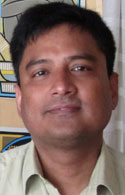
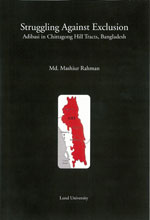 • PhD Candidate Mashiur Rahman became a doctoral student at the department in 2006. Before coming to Sweden Mr. Rahman was working as Assistant Professor of Sociology at
Dhaka University. He will defend his doctoral dissertation entitled ”Struggling Against Exclusion-Adibasi in Chittagong Hill Tracts, Bangladesh” on Wednesday 8 June 2011, at 09.15. The faculty opponent is Dr. Pernille Gooch, Division of Human Ecology, Lund University. Venue: Kulturens Auditorium, Lund.
• PhD Candidate Mashiur Rahman became a doctoral student at the department in 2006. Before coming to Sweden Mr. Rahman was working as Assistant Professor of Sociology at
Dhaka University. He will defend his doctoral dissertation entitled ”Struggling Against Exclusion-Adibasi in Chittagong Hill Tracts, Bangladesh” on Wednesday 8 June 2011, at 09.15. The faculty opponent is Dr. Pernille Gooch, Division of Human Ecology, Lund University. Venue: Kulturens Auditorium, Lund. ![]()
Abstract: This study provides an overview of social policy and poverty among ethnic minorities (Adibasi) in Bangladesh, with a special focus on the Chakma people belonging to the Sonai and Mayni localities, situated in the Chittagong Hill Tracts (CHT). The main argument concerns their struggle against exclusion which is an indispensable part of policy studies. Rahman concentrates on the historical processes and the current situation among the Adibasi, characterized by social exclusion, deprivation and poverty. Furthermore, he discusses the peace process, and attempts to create integration and cohesion in the CHT. An integral part of my work consists of qualitative and quantitative data obtained from nine different hamlets (para) inhabited by the Adibasi. The findings are used to show how the Adibasi have been deprived of their land, emphasizing in particular the arrival of settlers, army occupation, as well as various government projects initiated during different regimes. In addition, Rahman discusses the conflicts that have risen due to land grabbing, forced migration and displacement.
Bertil
Egerö started
a programme called Population
and Development in the Third World (PROP) in 1990 together with Prof.
Staffan Lindberg. PROP served as an institutional consultant to Sida
until 1997, with South Asia being one of the main areas of work. For
example, in 1994 PROP published a comparative study: Understanding
Reproductive Change: Kenya, Tamil Nadu, Punjab, Costa Rica (Eds.
Egerö and
Mikael Hammarskjöld, Lund; official
Swedish contribution to the UN Population conference in Cairo). It is
currently run as an independent program, organising Minor Field Studies
in demography, health, sociology, sociology of law, and social anthropology
and many of the MFS students are going to South Asia for fieldwork. More
information about PROP.
In 1997, Egerö and Lindberg started a consultancy called Social
Development Consultants (Sodeco) as a subsidiary to InDevelop AB in Uppsala.
Within this program, Egerö has worked as a consultant in
South Asia, for example in Bangladesh, with a a review and evaluation of the
Fourth Population and Health Project in 1998; and a review of the Health and
Population Sector Programme in 1999. In Pakistan he has also been involved in
an Assessment of the need for training on gender issues among UNDP Afghanistan
staff and its PEACE partners.
• Sara Goodman (now International Coordinator at Lund University’s Centre for Gender Studies) defended a Licentiate thesis in 1995, titled ”Gender, Technology and Knowledge” dealing with India. She has later worked on a project on Global social movements, virtual feminism and local perspectives – A comparative study of Scandinavian Countries and India. This project is a pre-study of the use of information and communication technology within feminist and women's movements in a global context. The project explores how feminist movements in Scandinavian countries and in India are using cyberspace and the Internet. Particular attention has been given to four types of activities. Firstly, to the use of the net by local activist women’s groups such as women crisis centres and how these groups use (or don’t use) the Internet in relationship to local members, to international feminist communities. Secondly, global feminist sites to be explored in relation to local groups. Thirdly governmental and trans-governmental organisations' activities to be explored. Finally the use of the Internet within Women’s Studies to be studied as a special case.
Other South Asia related PhD theses:
• Charles Brown defended a doctoral dissertation titled ”The Goat is Mine, the Load is Yours. Morphogenetic Analysis of Bhotiya-Shauka” in 1984.
• Anders Hydén defended a doctoral dissertation titled ”Passage to India. An Anthropological Study of Discipleship and Transcendence in the Bhagawan Movement” in 1991. Dr. Hydén is now working at the Dept. of Caring Sciences and Sociology at University of Gävle.
• Pernille Gooch defended a doctoral dissertation titled ”At the Tail of the Buffalo: Van Gujjar Pastoralists between the Forest and World Arena” in 1998 (photo from the thesis cover to the right). Dr. Gooch is now working at the Division of Human Ecology, Department of European Ethnology, Lund University. More information about her research.
Lund University Development Research Day 2005
The 2005 Lund University Development Research Day (Utvecklingsforskningens
Dag) was held on Friday 14 October 2005. The theme for the day was ”Inverted
Views of the World”, and the arrangement was hosted by the Dept.
of Sociology, in collaboration with the Lund Association of International
Affairs (UPF). The programme included short lectures in parallel sessions,
by researchers and students presenting Minor Field Studies, many of them
related to South Asia.
The keynote speaker was Professor Staffan Lindberg. His opening lecture
was based on ongoing field work carried out in Tamil Nadu, and is titled
”In Wet and Dry – 25 years of change in rural South India”.
After lunch, Dr. Pernille Gooch from the Human Ecology Division at Lund
University lectured on ”Tribal Council Post-Tsunami Solutions
for a Sustainable Future in the Central Nicobars”. The 2005
Hydén Award will also be given to the best undergraduate paper
in development studies during the last year. Furthermore, there is a poster
exhibition throughout the day, where departments and researchers present
their research. Venue: Geocentrum building 1 (Dept. of Social and Economic
Geography), Sölvegatan 10. The parallel sessions running both in
the morning and afternoon, when researchers and students present their
development research, will however take place within the temporary premises
of the Dept. of Sociology, at Sölvegatan 7, close by. Full
programme and other information (as a pdf-file).
Indian guest professor at the department
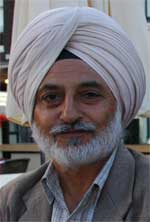 Professor Sucha
Singh Gill from the Department of Economics
at Punjabi University in
Patiala, India, was a guest scholar at the Dept. of Sociology (and also
at NIAS, the Nordic Institute for Asian Studies, Copenhagen) during the
period 1–30 June 2006. Professor
Gill is one of the foremost social scientists in India when it comes
to the analysis of agricultural transformation and rural change with
a specialization on Punjab and Northwest Indian agriculture. He has written
extensively on agricultural economics and change, land reforms, resources
mobilisation and farmers movements. In 2001 he authored Land Reforms
in India, Vol. 6: Intervention for Capitalist Transformation in Punjab
and Haryana (New Delhi: SAGE).
Professor Sucha
Singh Gill from the Department of Economics
at Punjabi University in
Patiala, India, was a guest scholar at the Dept. of Sociology (and also
at NIAS, the Nordic Institute for Asian Studies, Copenhagen) during the
period 1–30 June 2006. Professor
Gill is one of the foremost social scientists in India when it comes
to the analysis of agricultural transformation and rural change with
a specialization on Punjab and Northwest Indian agriculture. He has written
extensively on agricultural economics and change, land reforms, resources
mobilisation and farmers movements. In 2001 he authored Land Reforms
in India, Vol. 6: Intervention for Capitalist Transformation in Punjab
and Haryana (New Delhi: SAGE).
On 7 June 2006 he held a lecture on ‘Marginalised
Peasantry Seeking Safe Exit in India in the Era of Globalisation’.
Venue: Department of Sociology. More information (as
a pdf-file)
Undergraduate Courses & International Masters Programme:
Since 1972, Staffan Lindberg and Göran Djurfeldt have
been teaching special undergraduate courses on India/South Asia in sociology
and development studies at the Department
of Social and Economic Geography at Lund University. These courses
have involved South Asia in several respects, like social structure and
social change, development co-operation, agricultural development, etc.
Djurfeldt is still engaged as teacher in development studies as is Abdulhadi
Khalaf. Lindberg has taught several doctoral courses in
development sociology in which South Asian theoretical and empirical
aspects have been central.
In August 2001 the department started a 1 – 20 credit undergraduate
course on India/South Asia at Österlen’s Folk High School
in Tomelilla.
The department
is often engaged in Minor Field Studies (MFS), the Sida financed
grants programme for fieldwork for C-D students who wish to write an
undergraduate thesis in the field of development studies. Link to website: http://www.soc.lu.se/mfs.
Many sociology students have done field work in South Asia as MFS. One
of them is Rafaela
Persson.
In the Spring 2004 she spent a couple of months in Delhi, India, for
a MFS case study of some companies and NGOs in Delhi. She then wrote
a Masters thesis titled
”Social mobilization and child work”.
• Kjell
Nilsson is involved in an International Internet-based
Masters programme on ”Globalisation and
Transformation in a Comparative Perspective”. In August
2003 he received SEK 50 000 as a SASNET planning
grant for developing this programme through establishing institutional
cooperation with Indian universities (teachers/researchers and students),
with an intention that teachers and students from India would participate
in the course from September 2004.
The planning grant was used for journeys to meet contact persons at the
University of Mumbai (Dr S M Michael and
Dr Rajesh Kharat) and Banaras
Hindu University, Varanasi (Professor Dipak
Malik).
The Masters programme was started in 1999 as a a collaborative project
between seven universities in four countries (Bulgaria, Germany, Romania
and Sweden). The project was funded by the European Union. From
2004 the project expanded into Asia, by bringing in partner universities
in China, Vietnam and India (including Banaras Hindu University in Varanasi
and the University of Mumbai). It was also transformed into two
part-time courses, with 30 ECTS credits each. Teachers and students were
supposed to come from all the countries involved. The programme is now closed.
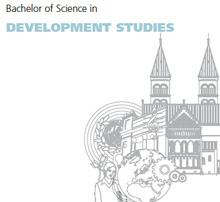 Development Studies Programme
Development Studies Programme
• Lund University’s Dept. of Social and Economic Geography starts a new Bachelor of Science programme in Development Studies with a major in Economic History, Human
Geography, Political Science or Sociology from September 2009. The programme is interdisciplinary and focuses on economic, social and political processes and their linkages to development cooperation. The duration of the programme is three years. It is organised in collaboration with the Department of Sociology, and also the Dept. of Economic History and the Dept. of Political Science. Last date of application was 15 April 2009. More information about the Programme. ![]()
SASNET - Swedish South Asian Studies Network/Lund University
Address: Scheelevägen 15 D, SE-223 70 Lund, Sweden
Phone: +46 46 222 73 40
Webmaster: Lars Eklund
Last updated 2011-05-30
